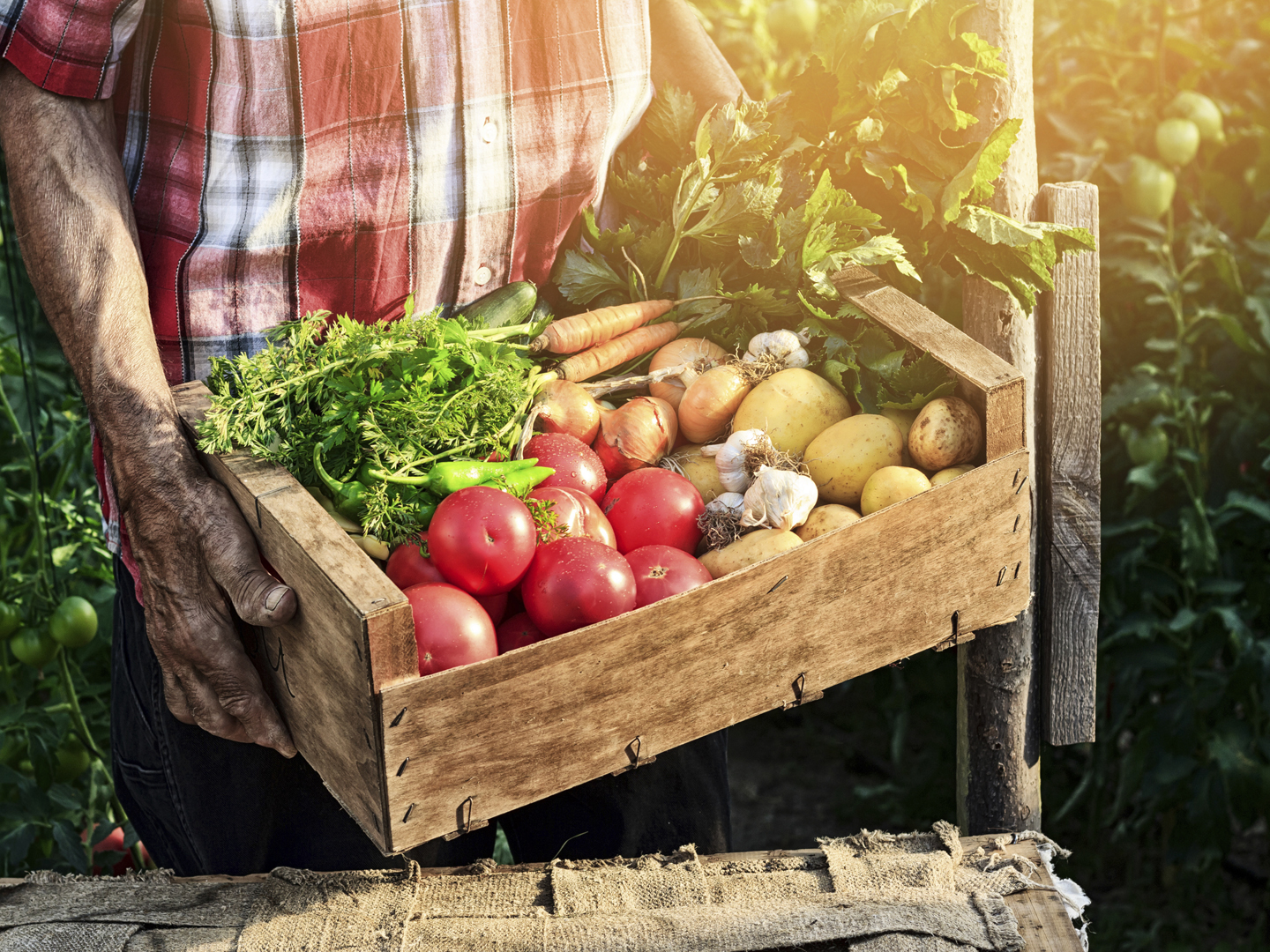March Seasonal Foods

A varied diet rich in fruits and vegetables lends itself naturally to optimum heath. By incorporating all the colors of the rainbow onto your plate, you add ideal sources of health-protective vitamins, phytonutrients, carotenoids and more to your diet and healthy lifestyle. The following fruits and vegetables are in season in March in North America – add them to your meals throughout this month!
Bananas
May help support normal blood pressure, healthy bones, gastrointestinal health, and protect against atherosclerosis and heart disease.
A favorite tropical fruit of Americans, bananas are available year round, but can bring a touch of summer to your table this month. Native to the Caribbean and Central America, bananas are a good source of vitamins B6 and C, and are rich in potassium – one banana contains 450 mg of potassium, one-fifth of the adult daily requirement – and offer a fair share of magnesium as well. In addition, bananas help to strengthen the stomach lining and are good for soothing indigestion. The perfect go-anywhere food, bananas have only about 100 calories each, and serve as a healthful snack or pick-me-up anytime during the day. Bananas naturally lend their sweetness to cereals, smoothies, breads, muffins, and desserts, and also work well in relishes and salads. Diabetics should take note that bananas have an intermediate score of 55 on the Glycemic Index (GI), a measure of how fast carbohydrate foods are converted in the body to blood glucose. Dr. Weil recommends diabetics choose fruits that rank low on the glycemic index, so if you do have diabetes, eat low-index fruits such as cherries, grapefruit, apricots and apples more frequently than you eat bananas.
Quick tip: Don’t toss brown bananas – overripe bananas are perfect to use in banana bread and muffins.
Cauliflower
May help protect against cancers and heart disease.
Part of the cruciferous vegetable group, cauliflower is rich in antioxidants and contains a naturally occurring compound called indole-3 carbinol (I-3-C), which has been researched for its health-protective effects. Providing a good dose of vitamin C as well as vitamin K, fiber and folic acid, this low-calorie veggie can be eaten raw, steamed, baked or boiled, and makes a wonderful base for creamy sauces and in soups. If cauliflower (and other cruciferous veggies) cause you to have gas, try eating yogurt, kefir, or buttermilk regularly (or take probiotic supplements) to boost the friendly bacteria in your colon. You might also try adding lemon juice to your meals; and limiting high-fat foods. These simple steps can reduce bloating and discomfort and help the stomach to empty faster, allowing gas-producing compounds to move more readily into the small intestine.
Quick tip: Select a cauliflower head that that is compact, free of visible spots, and that has a uniform cream color. Avoid heads where the flowers are separated.
Kiwi
May help promote a healthy immune system, vision and cardiovascular health.
Furry on the outside and emerald green on the inside, kiwi is an odd looking fruit that packs a big dose of vitamin C – approximately 95% of the recommended daily value in one fruit. It is also high in other antioxidants and is a good source of fiber. Consider adding kiwi to your cereal, fruit salads, garnishes and smoothies for a healthy, sweet, tangy treat. Or, eat on its own by scooping the flesh right out of the skin.
Quick tip: To find a ripe kiwi, look for one that appears plump and yields to gentle pressure when squeezed lightly. Avoid mushy kiwis or ones with shriveled-looking skin.
Leeks
May help promote healthy cholesterol levels, prevent atherosclerosis and high blood pressure, and stabilize blood sugar levels.
Part of the Allium vegetable family (along with garlic and onions), leeks provide an elegant, subtle flavor that enhances everything from soups to stir fries. Leeks provide manganese, vitamin B6 and vitamin C, and folate, and are very good for overall heart health. An important part of European cooking, leeks can substitute for scallions and green onions in many American recipes.
Quick tip: Since larger leeks tend to be more fibrous, choose smaller ones (a diameter of one and one-half inches or smaller) for their delicate texture and flavor.
Pineapple
May help promote a healthy immune system, and prevent inflammatory conditions.
The pineapple is a favorite tropical fruit that, when ripe, provides a sweet and tangy taste. An excellent source of manganese and vitamin C, fresh pineapple is also a good source of bromelain, a natural anti-inflammatory that is helpful for addressing the symptoms of sinusitis, gout, arthritis, and swelling and bruising. Eat it plain, in a smoothie or fruit salad, or use in relishes or to add sweetness to dishes such as pizza. Because pineapple has an intermediate score of 66 on the Glycemic Index, diabetics looking for low-index fruits should eat cherries and apples more often than they eat pineapple.
Quick tip: For both flavor and health benefits, fresh is best when it comes to pineapple. When shopping, choose one that is heavy for its size, cut up and store in an airtight container with some of its own juice for a healthy treat.









